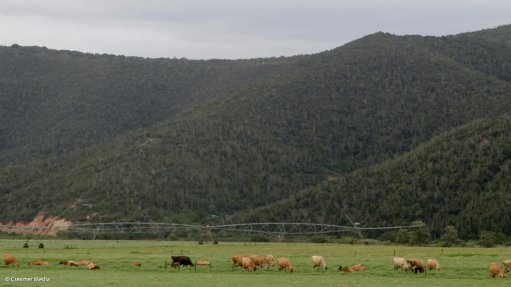
Photo by: Duane Daws
The NWK agricultural group has terminated its crop and stock farming activities undertaken by its subsidiaries, NWK Boerdery and Kalahari Beef, as this corporate business model could not succeed in achieving sustainable results.
The company, a provider of agricultural services and inputs, primarily in the North West province, explained in a statement on Wednesday that alternative financing options would be offered to qualifying contracted crop farmers, while contracts with the associated stock farmers would be managed out “in the best way possible” for both parties.
“As an agricultural business, NWK is very much aware of the volatility of agriculture, and unfavourable climatic conditions and price management are, therefore, acceptable variables.
“However, according to NWK Boerdery’s current corporate farming model, the liability towards contractor producers in a below-average year is not sustainable, as the financial losses that accumulate in such years cannot be made up in the years when average and above-average yields are obtained,” explained NWK MD Danie Marais.
The company entered corporate crop farming in May 2012 to remain a relevant role-player and, particularly, to gaurantee the grain volumes received from its traditional area of operation.
“The hectares contracted by NWK Boerdery mostly fell in this area, which is a risky crop production area in South Africa,” noted the NWK, pointing out that since 2012, this area had experienced unfavourable agricultural years.
Although similar farming models were presented by more than one input supplier in the market to producers at the time, NWK said it was the only supplier that eventually offered the model within a specific geographic area and risk profile.
However, because of the geographic concentration of NWK Boerdery, four out of five agricultural years with average to above-average crops and grain prices had to be realised to generate a sustainable profit.
As a result, NWK diversified, introducing a stock farming model by January 2013 through the acquisition of Kalahari Beef. This subsidiary involved a slaughtering agency and cattle production on a contract basis with producers, but did not succeeded in mitigating NWK’s exposure to and the impact of climate risk on crop farming. NWK Boerdery’s projections with respect to the slaughtering agency were also not realised.
NWK had several other subsidiaries, including, Noordfed, Opti Feeds and Opti Chicks, and provided several services to the agriculture sector, such as silo services and financing.